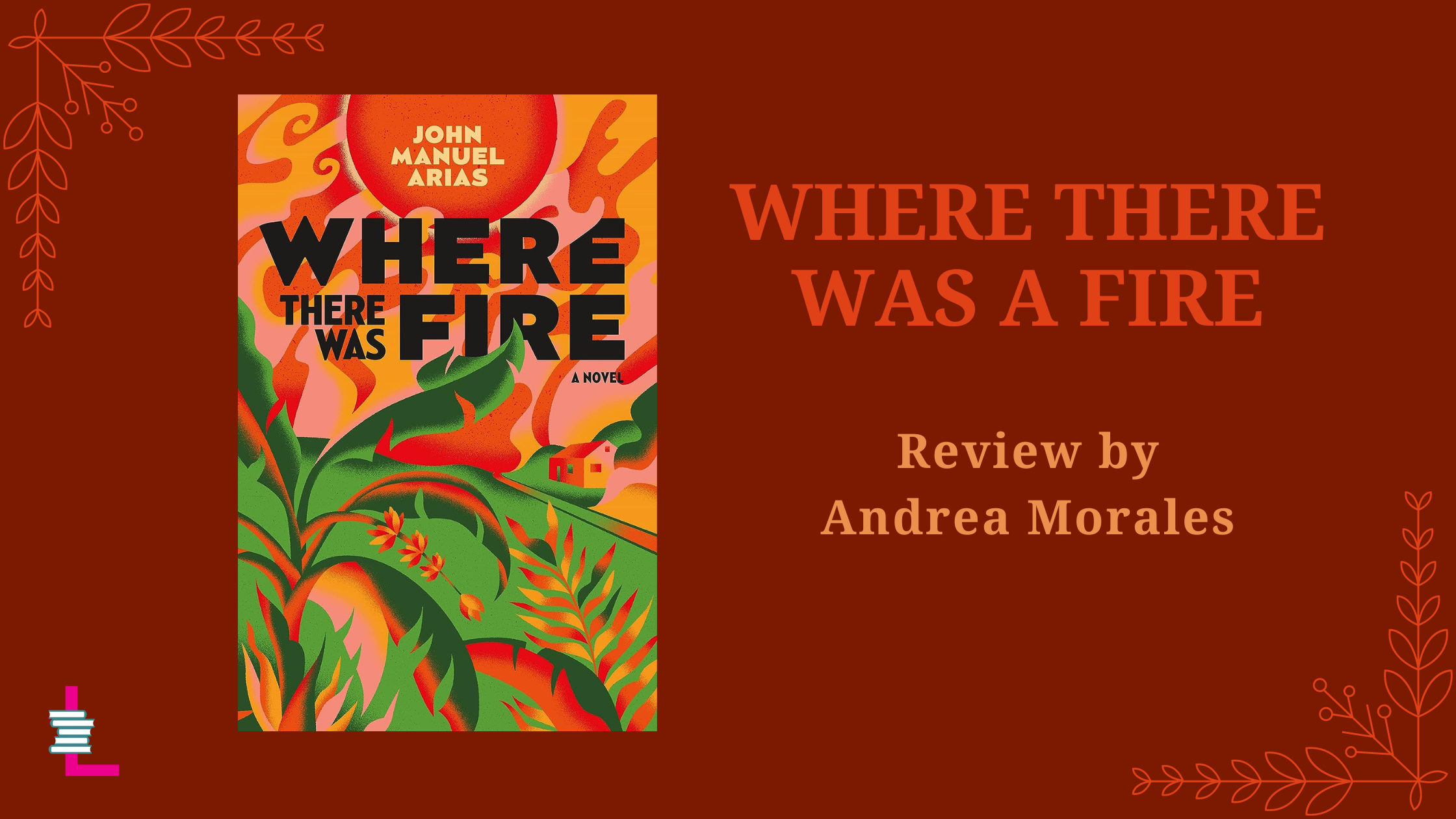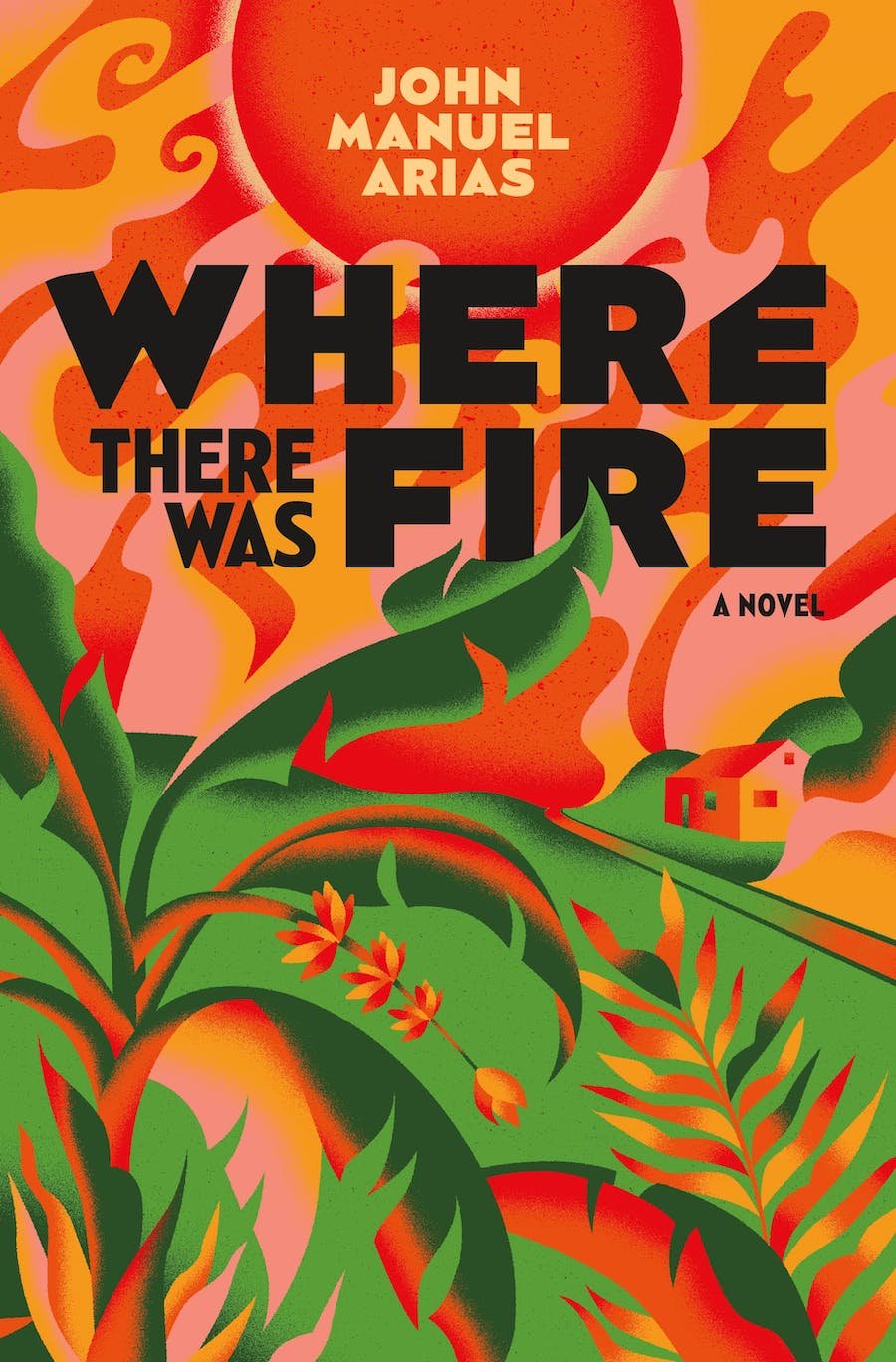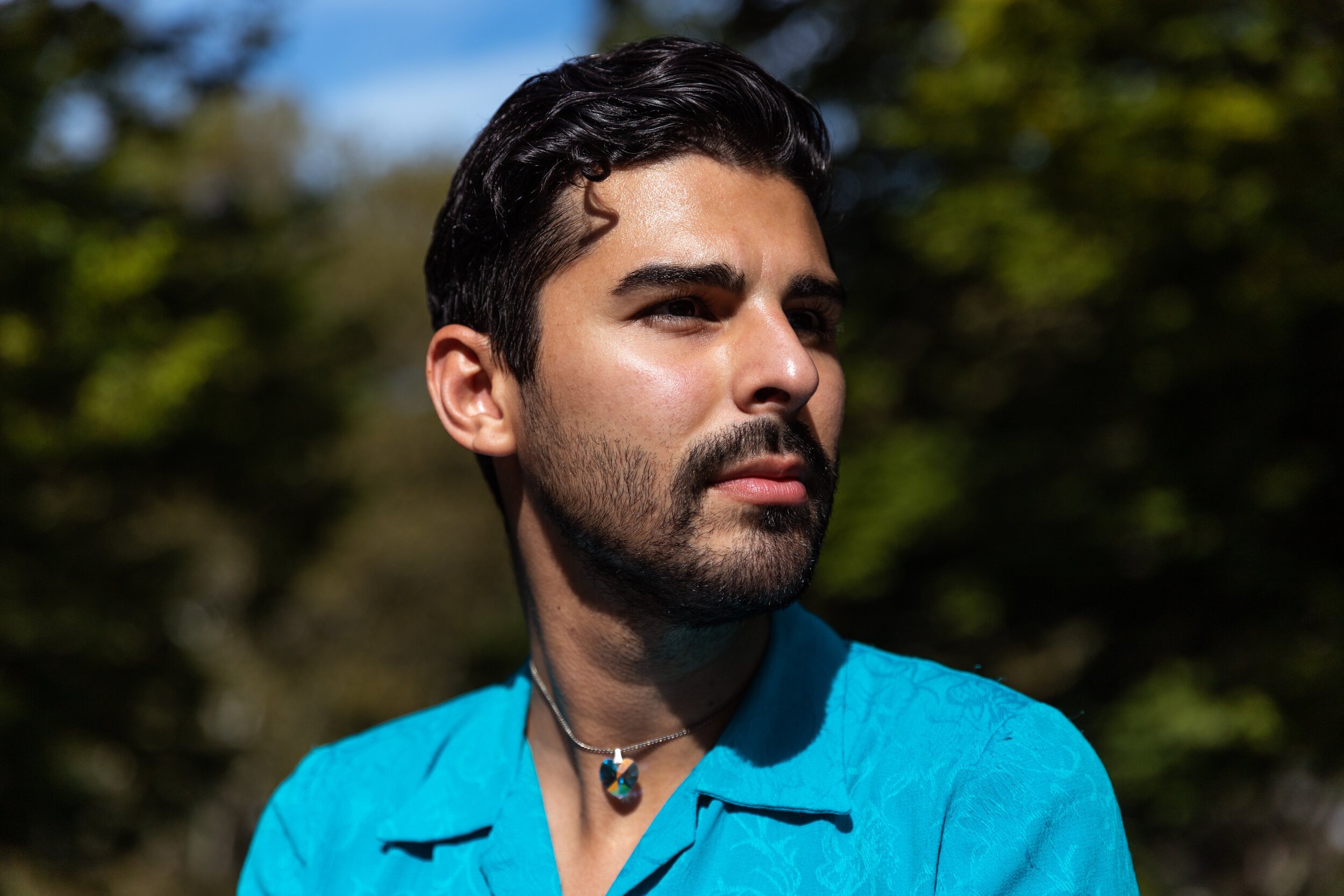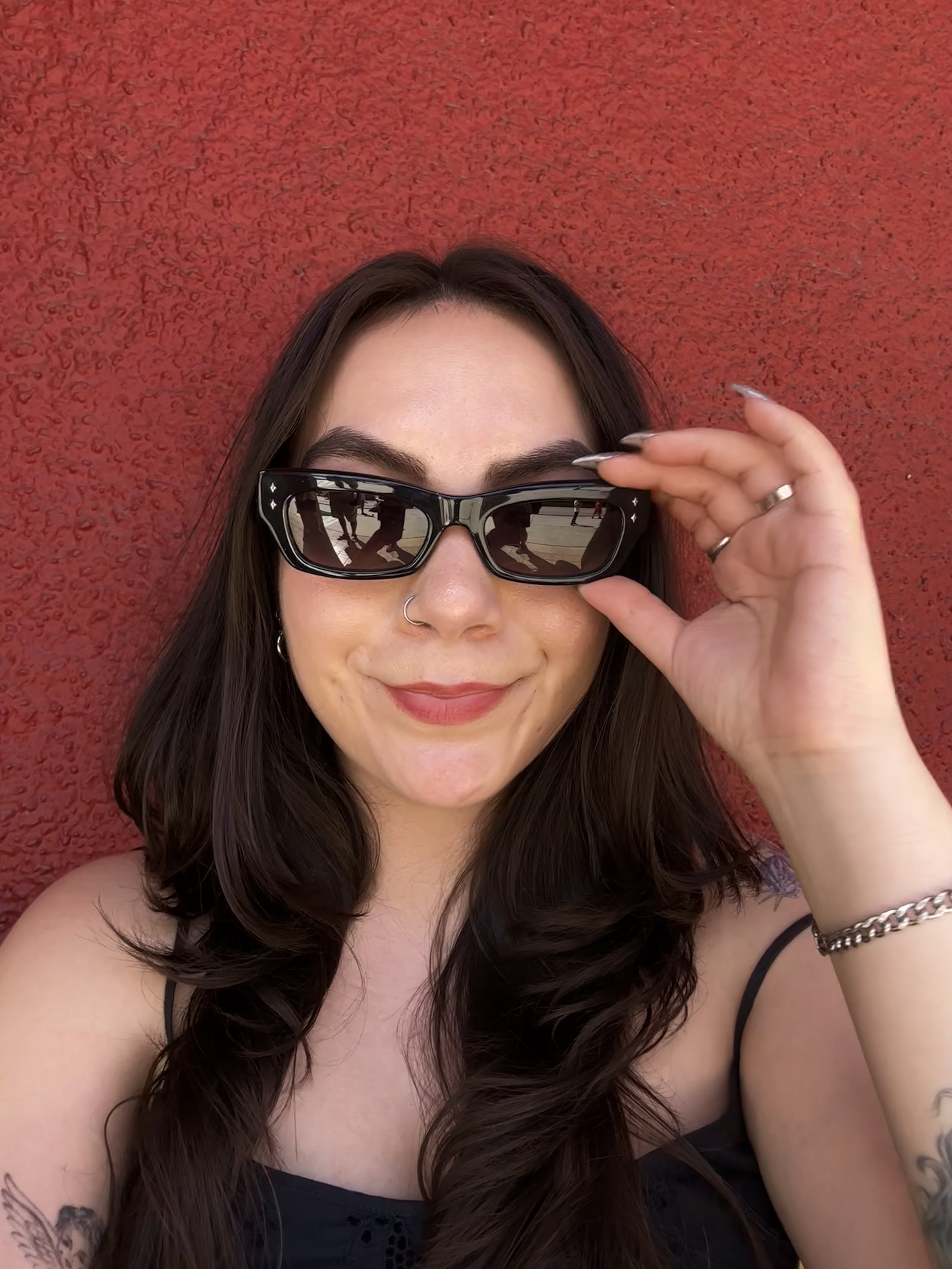We don't learn our family history all at once. We learn it in fragments, casual asides, and eavesdropping. Tangents are important, oftentimes everything. We master the art of listening as much as we master the art of interjecting because storytelling can be as interactive as it is captivating and, while we do take the scenic route, we get to the point. Children of a certain generation also know which questions to ask and won’t ask them. That is to say, some of us hesitate on subjects we inherently know are delicate. And it’s in this tension of what’s withheld that John Manuel Arias brilliantly writes his debut Where There Was Fire, detailing a strained family saga haunted by the colonial history and machismo it’s set against.
The novel opens with a hot night in 1968 Costa Rica, an evening we soon learn was planned to be spent as a date to the local theater, that culminates in a destructive fire and murder. Told in shifting multi-generational perspectives traversing time, the women of the novel are left to make sense of what came to pass that night and in the years since. Illustrated by the novel’s nonlinear narrative approach, piecing together family history doesn’t happen chronologically. Like an investigator’s wall crowded with tacks and string, we trace a web of evidence to the novel’s present time, 1995, when the oldest daughter of the family is intent on answers, for her own sake and for the sake of her son. However, this pursuit comes more easily to us as readers with valuable access to various points of view that render a fuller scope of the tragedies wrought throughout the novel. Where a mother may feel righteous in her bitterness, we may see a daughter who has a right to her pain. In the novel, Arias pens a range of voices so that we see it’s not just one stake in the matter, it’s several.
Arias, who is also a poet, writes this story with lyricism and evocative imagery expressive of Latin American canon. During his September in-person event at Book Soup LA for the novel, Arias discussed the necessity he felt in writing a speculative family history that leaned into magical realism rather than shied away from it. The mesmerizing croaks of toads (which I made the mistake of listening to on the Internet) and the myths woven into the story are the most memorable for me. And while I’m sure there is more than one reason Arias had to use this narrative style, the one I think about the most is that he’s haunted. He said as much, matter-of-factly describing his life living with ghosts. I thought about this a lot while I read the novel because being haunted can feel like nagging nostalgia, and I realized that all the women in the novel are haunted by their histories, including the parts unbeknownst to them. But it seems that, apart from the greed that drives the colonization of Costa Rica and the U.S. capitalization of locally farmed bananas and other crops, the women are directly harmed by the men in their lives too; by family members, friends, and the specters of machismo. And Arias shows us this harm processed by Costa Rican women, who sit with each other and drink instant coffee, in a country famous for their coffee beans.
This harm can seem so ordinary in a culture steeped in misogyny, to live with the omnipresent forces of patriarchy backed by a dominant religion and colonization. But Arias skillfully takes a deeper look at the family’s women of several generations, revealing their relationship dynamics, bringing forth their individual agencies and responsibilities to each other, and where they failed too. One of the book’s cruxes is mother-child estrangement and understanding what it takes to go against the societal norms woven into the culture, to have a child dignify themselves worthy of respect rather than blindly accept a mother who vaguely does everything “for a reason.” The novel’s narrative choices makes the estrangement more mystifying, since we don’t have all the information right away, pulling our sympathies in all directions. So while the search for explanations may be less complicated to us as willing readers, the novel challenges us to do the heavy work of feeling our conflicting emotions.
““Where There Was Fire” examines whether time can heal generational wounds, if forgiveness can come with time, or if grudges and pain are as much part of our inheritance. I think Arias points to mercy instead. The rains of Costa Rica could cleanse a fire.”
When I think about Where There Was Fire, the heartwrenching question I come back to is: what could have been if generational pain didn’t make a family so guarded with each other? Though the pain is shared and passed around, it can be so isolating. The avoidance—and cowardice—that spans decades is toxic, and in the novel Arias runs this up against the toxicity of the pesticides used by the American companies mining bananas with fervor. The colonial and capitalistic harm done to Costa Ricans is a major part of the generational trauma the novel’s characters contend with, and that’s the thing: how does a Costa Rican family have the space to understand one another under the gigantic and violent shadow of U.S. capitalism? It informs their dynamics, a legacy that was crudely and unsuccessfully shrouded by those same American companies, the living ghosts Costa Rican descendents live with. Ultimately, in family histories, Arias sensitively shows us how misunderstandings brew in silence and resentments nestle in what is left unsaid. It makes it easy for violence. Where There Was Fire examines whether time can heal generational wounds, if forgiveness can come with time, or if grudges and pain are as much part of our inheritance. I think Arias points to mercy instead. The rains of Costa Rica could cleanse a fire.
John Manuel Arias is a queer, Costa Rican American poet and writer, and the National Bestselling author of Where There Was Fire, a Good Morning America Buzz Pick and Barnes & Noble Discover Pick. A Canto Mundo fellow & an alumnus of the Tin House Summer Writers Workshop, his prose and poetry have been published in The Kenyon Review, PANK, The Rumpus, and Akashic Books. He has lived in Washington D.C., Brooklyn New York, and in San José, Costa Rica with his grandmother and four ghosts.
Andrea Morales is a Board Member and Fellowship & Writers Mentorship Director of Latinx in Publishing. As a Contracts Associate at Macmillan, she works on and negotiates various book agreements on the adult and young adult trade side. She is from and based in Los Angeles, where she graduated from the University of Southern California with a B.A. in English Literature and a minor in Psychology. She previously interned as an editorial assistant with Red Hen Press and a literary agent. A daughter of Guatemalan immigrants, her special mission is to boost the visibility of Central American writers and literature. You can find her on Instagram as @guatemalcriada and lurking on Twitter as @guatemalcriada.










